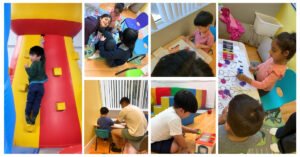Play is often considered the language of children. It is through play that children explore their world, express their feelings, and develop essential skills. Play-based therapy techniques leverage this natural inclination to foster growth and development in various areas, including fine motor skills, sensory integration, and social interactions. This blog explores the effectiveness of play as a therapeutic medium and highlights various techniques used in play-based therapy.
Understanding Play-Based Therapy
Play-based therapy is a form of psychotherapy that utilizes play as a means for children to express their thoughts, emotions, and experiences. It allows therapists to engage with children in a familiar context, helping them navigate complex feelings and situations that they may not be able to articulate verbally. Research has shown that play therapy can effectively address behavioral issues, anxiety, depression, trauma, and social difficulties.
By creating a safe environment through structured play, therapists can guide children to express their thoughts and emotions, making it easier for them to process difficult situations.
Key Benefits of Play-Based Therapy

Enhancing Fine Motor Skills
One of the major benefits of play-based therapy is the improvement of fine motor skills. Activities like drawing, painting, or manipulating small toys improve dexterity and coordination. For instance, clay play therapy encourages children to sculpt and create, which fosters hand strength and control. Fine motor skills are essential for daily tasks like writing, dressing, and using utensils, making this a critical aspect of a child’s development.
Promoting Sensory Integration

Many children struggle with processing sensory information, and play-based therapy can help with sensory integration. Sensory-rich activities, such as sand or water play, allow children to explore textures and develop tactile sensitivity. These activities help children process sensory input more effectively, which is important for daily functioning and reducing sensory overload.
Facilitating Social Interactions
Group play scenarios provide opportunities for children to develop social skills, such as collaboration, communication, and empathy. Techniques like role-playing and puppet play enable children to practice these skills in a safe, guided environment. For children with social anxiety or difficulties in group settings, this aspect of play-based therapy can be invaluable in helping them navigate peer relationships.
Effective Play-Based Therapy Techniques
Role-Playing
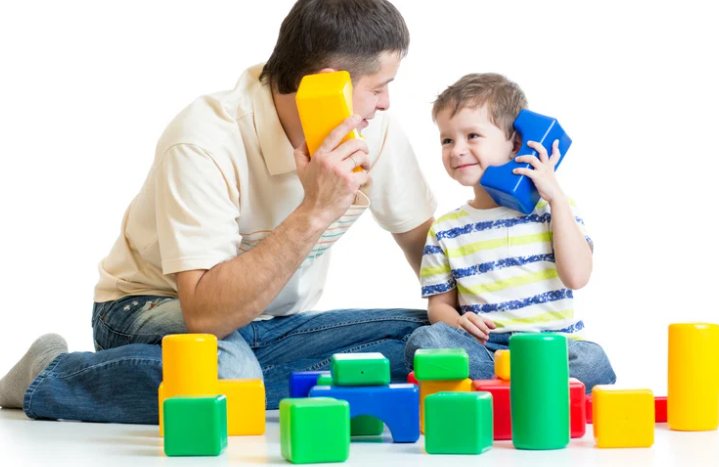
Role-playing allows children to act out challenging or anxiety-inducing scenarios in a controlled environment. By doing so, they can process emotions, rehearse different reactions, and develop problem-solving skills. Whether it’s practicing a school interaction or working through a family conflict, role-playing helps children gain confidence in managing difficult situations.
Puppet Play
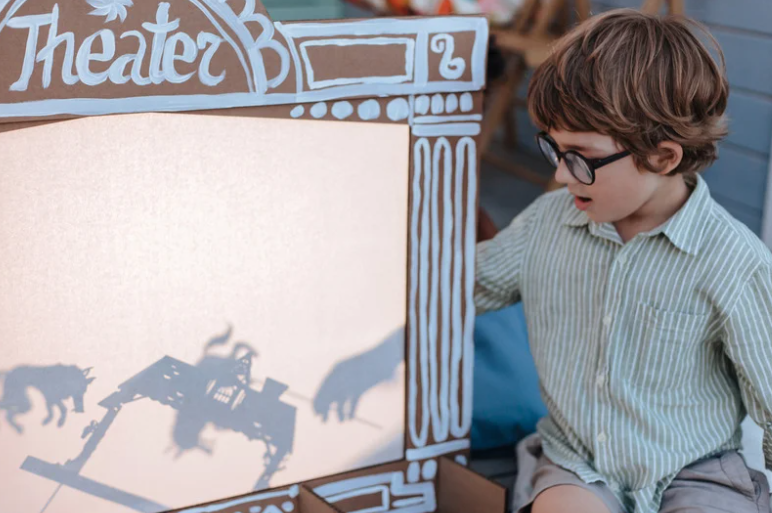
Puppets provide a non-threatening way for children to express their feelings. By projecting their thoughts and emotions onto puppets, children can talk about difficult subjects like family dynamics, trauma, or fears without feeling directly exposed. This method helps build emotional awareness and provides a distance that allows children to express themselves more openly.
Art-Based Activities

Drawing, painting, and other forms of artistic expression give children a non-verbal outlet for emotions. Therapists can gain valuable insights into a child’s inner world by observing the themes, colors, and shapes that emerge in their artwork. Art-based therapy is particularly effective for children who struggle to articulate their emotions verbally.
Sand Tray Therapy
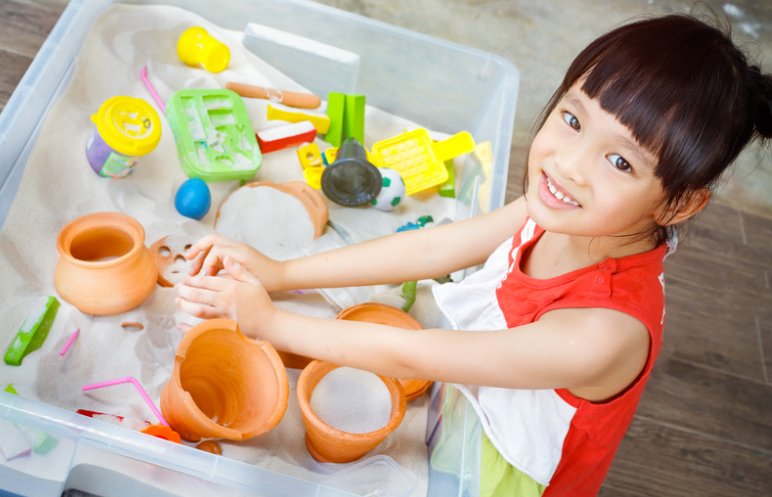
Sand tray therapy is a powerful technique that allows children to create miniature worlds using small toys and figures. By building these scenes in the sand, children can express their thoughts and feelings symbolically. This technique helps children process complex emotions and gain a deeper understanding of their internal experiences.
Emotion Thermometer
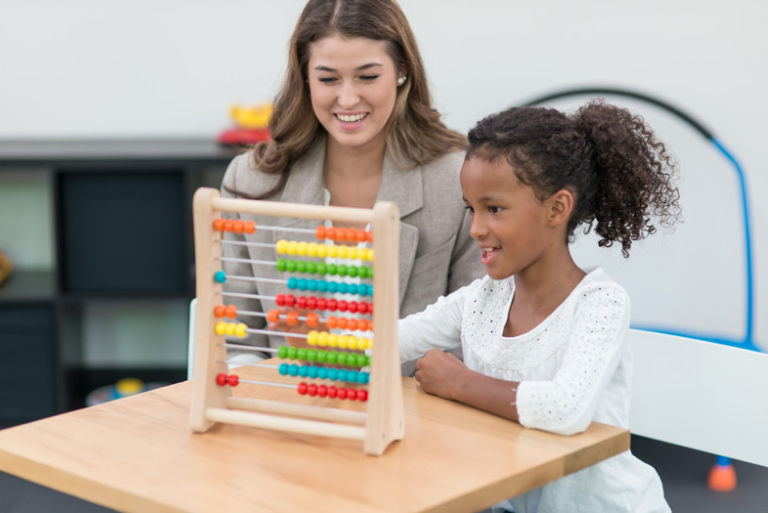
The emotion thermometer is a visual tool that helps children communicate how they are feeling on a scale from happy to sad. This technique teaches emotional regulation by helping children identify and express their feelings. Over time, it can help children manage their emotions more effectively in everyday situations.
Creative Storytelling

Children often find it easier to talk about difficult experiences by creating stories. In creative storytelling, children narrate stories using toys, dolls, or figures to represent characters and scenarios. This technique allows children to process their emotions indirectly, making it easier to discuss personal experiences.
Sensory Play
Sensory play involves activities like water beads, kinetic sand, or textured toys that engage a child’s sense of touch. These activities not only provide a calming effect but also help children develop sensory processing skills. Sensory play is especially beneficial for children with sensory processing disorders or those on the autism spectrum.
Board Games
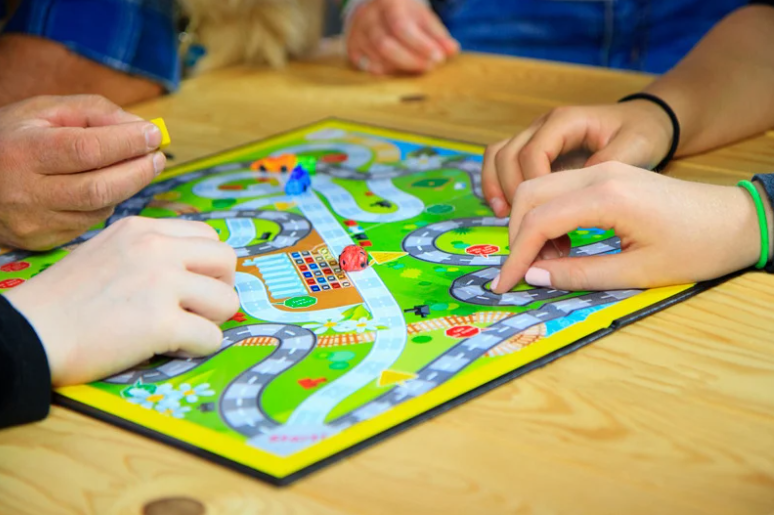
Therapeutic board games designed for use in therapy sessions promote interaction, cooperation, and communication among peers. These games teach valuable social skills, such as taking turns, following rules, and handling winning or losing. In a group setting, board games can foster positive peer relationships and teamwork.
Movement Games
Incorporating physical movement into therapy sessions helps children release energy, improve gross motor skills, and manage stress. Games like obstacle courses or dancing provide an outlet for physical activity while promoting body awareness and coordination. Movement-based therapy is especially helpful for children who have difficulty sitting still or managing high energy levels.
Communication Games
Communication games focus on enhancing verbal expression and improving language skills. These games encourage children to articulate their thoughts clearly and practice effective communication strategies. Communication games are essential for children who struggle with social communication or language delays.
Costs Associated with Play-Based Therapy

The cost of play-based therapy can vary depending on location, the therapist’s credentials, and the frequency of sessions. On average, play-based therapy can range from $75 to $150 per session. Some therapists offer sliding scale fees or accept insurance, which can make therapy more accessible. It’s important to discuss payment options and coverage with your therapist before starting therapy.
When to Call a Professional
If your child is exhibiting signs of emotional distress, social difficulties, or developmental delays, it may be time to consider play-based therapy. Children who experience frequent meltdowns, have difficulty interacting with peers, or show signs of anxiety or depression can benefit from professional therapeutic intervention. Consulting with a pediatric therapist can help determine the best course of action for your child’s unique needs.
Play-based therapy is most effective when conducted by a trained professional who understands child development and therapeutic techniques. Seeking help from an expert ensures that your child receives the guidance and support they need to thrive.
Play-based therapy offers a versatile and effective approach to helping children develop essential skills in a safe, engaging environment. By focusing on the natural language of children—play—therapists can foster emotional, social, and physical growth. Whether addressing fine motor skills, sensory integration, or social interactions, these techniques provide children with the tools they need to navigate the complexities of childhood. If your child is facing challenges, consulting a professional therapist skilled in play-based techniques can make a profound difference in their development.






